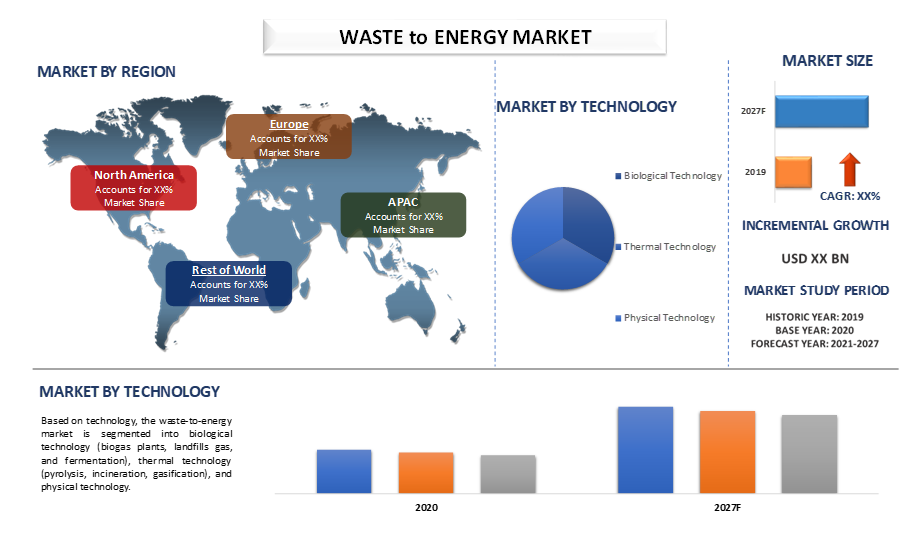How NFC Business Cards Help You Network at Events Faster

Introduction to NFC Business Cards
In today's rapidly evolving business landscape, networking has become more crucial than ever before. The traditional exchange of paper business cards, while still common, is increasingly being viewed as outdated and inefficient. Enter Near Field Communication (NFC) business cards - a revolutionary technology that is transforming how professionals connect at events, conferences, and networking gatherings.
NFC business cards represent a paradigm shift in professional networking, offering a seamless, instant, and highly efficient way to share contact information and establish meaningful business connections. These innovative digital tools eliminate the friction traditionally associated with networking, allowing professionals to focus on building relationships rather than fumbling with paper cards or manually entering contact details into their phones.
The concept of NFC business cards might seem futuristic to some, but the technology is already here and rapidly gaining adoption across various industries. From tech startups to established corporations, professionals are discovering that NFC business cards provide a competitive advantage in networking situations, enabling them to make more connections in less time while leaving a lasting impression on potential business partners, clients, and collaborators.
The Evolution of Networking at Events
Professional networking has undergone significant changes over the past few decades. What once relied heavily on face-to-face interactions and paper business card exchanges has evolved into a more dynamic and technology-driven process. The traditional networking model often involved collecting stacks of business cards at events, only to have them sit in desk drawers or get lost in the shuffle of daily business activities.
The digital revolution has fundamentally changed how professionals approach networking. Social media platforms like LinkedIn transformed the way people maintain professional connections, while smartphones made it easier to store and organize contact information. However, the actual process of exchanging information at events remained largely unchanged until the emergence of NFC technology.
Modern networking events attract diverse professionals from various industries, each with different comfort levels regarding technology adoption. The challenge for event organizers and attendees alike has been finding solutions that bridge the gap between traditional networking methods and cutting-edge digital tools. NFC business cards address this challenge by offering a solution that feels familiar yet provides significant technological advantages.
The COVID-19 pandemic further accelerated the need for contactless networking solutions. As professionals became more conscious of hygiene and physical contact, the appeal of touchless information exchange grew substantially. NFC business cards emerged as an ideal solution, allowing professionals to share information without physical contact while maintaining the personal touch that makes networking effective.
What Makes NFC Business Cards Different
NFC business cards distinguish themselves from traditional paper cards through their ability to store and transmit vast amounts of information instantly. Unlike conventional business cards that are limited to basic contact details printed on paper, NFC cards can contain comprehensive professional profiles, including social media links, portfolio samples, calendar scheduling links, and even multimedia content.
The fundamental difference lies in the user experience. When someone receives a traditional business card, they must manually input the information into their phone or contact management system. This process is time-consuming and prone to errors, often resulting in lost connections or incorrectly stored information. NFC business cards eliminate this friction entirely by automatically transferring information with a simple tap.
Another significant advantage is the dynamic nature of NFC business cards. Traditional paper cards become outdated the moment your contact information changes, requiring expensive reprinting and redistribution. NFC cards can be updated in real-time, ensuring that your contacts always have access to your most current information. This capability is particularly valuable for professionals who frequently change roles, companies, or contact details.
The customization possibilities with NFC business cards are virtually limitless. Users can create multiple profiles for different contexts, such as separate cards for different business ventures or tailored information for specific industries. This level of customization allows professionals to present the most relevant information to each contact, increasing the likelihood of meaningful follow-up conversations.
Speed and Efficiency in Professional Networking
The primary advantage of NFC business cards lies in their ability to dramatically increase networking speed and efficiency. At busy networking events, every second counts, and the ability to exchange comprehensive contact information in less than two seconds can make the difference between making a connection and missing an opportunity.
Traditional networking often involves a time-consuming process of card exchange, brief conversation, and manual data entry later. This process can take several minutes per contact and often results in incomplete or inaccurate information transfer. NFC business cards compress this entire process into a single, seamless action that takes mere seconds while ensuring complete accuracy.
The speed advantage becomes particularly apparent at large-scale events where professionals might meet dozens or even hundreds of potential connections. With traditional methods, the sheer volume of cards and information can become overwhelming, leading to missed opportunities and forgotten conversations. NFC technology allows networking professionals to focus on relationship building rather than administrative tasks.
Efficiency extends beyond the initial exchange to follow-up activities. Since NFC cards can include direct links to scheduling tools, social media profiles, and portfolio websites, recipients can immediately take action on new connections. This immediacy significantly increases the likelihood of successful follow-up and relationship development.
The psychological impact of efficient networking cannot be underestimated. When professionals can quickly and smoothly exchange information, they appear more organized and technologically sophisticated. This positive impression can influence how others perceive their professionalism and competence, potentially opening doors to more valuable business opportunities.
Breaking Down Traditional Networking Barriers
Traditional networking environments often present various barriers that can inhibit effective connection-making. Language barriers, cultural differences, and varying levels of technological comfort can all impact the networking experience. NFC business cards help address many of these challenges by providing a universal, intuitive method for information exchange.
For international professionals attending global events, NFC cards can store information in multiple languages or include translation links, making cross-cultural networking more accessible. The visual and tactile nature of NFC interaction transcends language barriers, allowing professionals from different backgrounds to connect more easily.
Introverted professionals often struggle with traditional networking approaches that require extensive verbal interaction and self-promotion. NFC business cards allow these individuals to share comprehensive information about their expertise and experience without lengthy verbal explanations. The technology can serve as a conversation starter and provide talking points that make networking more comfortable for those who find social interaction challenging.
The barrier of information overload is another challenge that NFC cards address effectively. Traditional networking often involves collecting numerous paper cards that become difficult to organize and prioritize. NFC cards can be programmed to automatically categorize contacts or integrate with customer relationship management systems, making post-event follow-up more manageable and systematic.
The Technology Behind NFC Business Cards
Near Field Communication technology operates on electromagnetic induction principles, enabling two devices to communicate when they are within close proximity, typically within four centimeters. This short-range communication method provides inherent security benefits while ensuring that information transfer is intentional and controlled.
NFC business cards contain a small chip and antenna that can store various types of data, from simple contact information to complex multimedia content. The technology is passive, meaning the cards do not require their own power source and are activated by the electromagnetic field generated by an NFC-enabled device, such as a smartphone or tablet.
The data storage capacity of NFC cards varies depending on the specific type of chip used, but even basic cards can store significantly more information than traditional paper cards. Advanced NFC cards can store several kilobytes of data, enough for comprehensive contact information, company details, and links to digital resources.
Programming NFC cards is typically accomplished through specialized applications that allow users to customize the information stored on their cards. These applications often provide templates for different industries and use cases, making it easy for professionals to create effective digital business cards without technical expertise.
The compatibility of NFC technology with modern smartphones is nearly universal, with most devices manufactured in recent years including NFC capabilities. This widespread compatibility ensures that NFC business cards can be used effectively in most professional networking situations without requiring recipients to download special applications or use specific devices.
Real-World Applications at Different Event Types
NFC business cards demonstrate their versatility across various event types, each with unique networking requirements and challenges. Understanding how these cards perform in different environments helps professionals maximize their networking potential and choose the most appropriate approach for specific situations.
Trade shows and industry conferences represent ideal environments for NFC business card utilization. These events typically feature high-volume networking opportunities with professionals who are actively seeking new business connections. The speed and efficiency of NFC cards allow attendees to maximize their networking time while ensuring that valuable connections are not lost in the shuffle of traditional card exchanges.
Corporate events and company meetings benefit from NFC cards' ability to facilitate internal networking and knowledge sharing. Employees from different departments or locations can quickly exchange contact information and project details, fostering collaboration and communication within organizations. The ability to include internal links and resources makes NFC cards particularly valuable for large corporations with complex organizational structures.
Startup events and entrepreneurial gatherings often attract tech-savvy professionals who appreciate innovative networking solutions. NFC business cards align well with the forward-thinking culture of these events and can help entrepreneurs make memorable impressions on potential investors, partners, and customers. The ability to include links to pitch decks, product demonstrations, and funding information makes NFC cards particularly valuable in these contexts.
Academic conferences and research symposiums present unique networking challenges, as participants often need to share complex research information and academic credentials. NFC cards can store links to research papers, academic profiles, and institutional affiliations, making scholarly networking more efficient and comprehensive.
Cost-Effectiveness and Long-Term Value
The financial benefits of NFC business cards become apparent when considering both immediate costs and long-term value. While the initial investment in NFC cards may be higher than traditional paper cards, the total cost of ownership often proves to be lower when factoring in reprinting costs, distribution expenses, and the value of improved networking outcomes.
Traditional business cards require reprinting whenever contact information changes, which can be expensive and time-consuming. NFC cards eliminate this recurring cost by allowing users to update their information digitally without needing new physical cards. This capability is particularly valuable for professionals who frequently change positions or contact details.
The environmental cost savings associated with NFC cards extend beyond direct financial benefits to include corporate social responsibility advantages. Companies that adopt NFC business cards can reduce their environmental footprint while demonstrating commitment to sustainability, which can be valuable for brand image and client relationships.
From a productivity perspective, NFC business cards save significant time in both networking and follow-up activities. The time saved on manual data entry and contact organization can be redirected toward relationship building and business development activities, potentially generating substantial returns on investment.
The durability of NFC cards also contributes to their cost-effectiveness. Unlike paper cards that can be damaged by water, wear, or mishandling, NFC cards are typically more robust and can withstand regular use without degradation in functionality or appearance.
Environmental Impact and Sustainability
The environmental implications of traditional business card printing are substantial when considered on a global scale. Millions of paper business cards are printed annually, contributing to deforestation, chemical pollution from printing processes, and waste generation when cards are eventually discarded.
NFC business cards offer a more sustainable alternative by eliminating the need for paper production, printing, and physical distribution. A single NFC card can replace hundreds or thousands of traditional paper cards over its lifetime, significantly reducing environmental impact per networking interaction.
The sustainability benefits extend beyond paper consumption to include reduced transportation and distribution costs. Traditional business cards must be physically shipped and distributed, contributing to carbon emissions and packaging waste. NFC cards can be programmed and updated remotely, eliminating these environmental costs.
For companies with strong environmental commitments, NFC business cards align well with sustainability goals and corporate social responsibility initiatives. The adoption of digital networking solutions can be highlighted in sustainability reports and marketing materials, demonstrating tangible environmental action to stakeholders and customers.
The longevity of NFC cards also contributes to their environmental benefits. Unlike paper cards that may be used once and discarded, NFC cards are designed for repeated use and can function effectively for years without degradation, maximizing the environmental return on investment.
Integration with Digital Marketing Strategies
NFC business cards serve as powerful tools for digital marketing integration, extending their value beyond simple contact exchange to comprehensive marketing and lead generation activities. The ability to link cards to various digital assets allows professionals to create cohesive marketing experiences that reinforce their brand message and value proposition.
Social media integration is one of the most valuable marketing applications of NFC business cards. Cards can be programmed to automatically connect recipients to LinkedIn profiles, Twitter accounts, and other social media platforms, increasing follower counts and engagement rates. This integration helps professionals build their online presence and maintain ongoing communication with new contacts.
Lead generation capabilities built into NFC cards can significantly improve marketing return on investment. Cards can include links to landing pages, newsletter signups, and special offers, allowing professionals to capture leads and nurture prospects through automated marketing sequences. The immediate nature of NFC interaction increases conversion rates compared to traditional follow-up methods.
Analytics and tracking capabilities associated with NFC cards provide valuable insights into networking effectiveness and marketing performance. Professionals can monitor how often their cards are scanned, which links receive the most clicks, and how recipients engage with their digital content. This data enables continuous improvement of networking strategies and marketing messages.
Content marketing integration allows NFC cards to serve as gateways to valuable resources such as white papers, case studies, and industry insights. By providing immediate access to high-quality content, professionals can establish thought leadership and build trust with new contacts more effectively than traditional networking methods allow.
Security and Privacy Considerations
The security aspects of NFC business cards are crucial considerations for professional adoption, particularly in industries with strict data protection requirements. Understanding the security features and potential vulnerabilities of NFC technology helps professionals make informed decisions about implementation and usage.
NFC technology inherently provides some security benefits through its short-range communication requirement. The need for devices to be within close proximity makes unauthorized access more difficult compared to other wireless technologies. However, professionals should still be aware of potential security risks and implement appropriate protective measures.
Data encryption capabilities available with advanced NFC cards provide additional security layers for sensitive information. Professionals handling confidential business information can utilize encrypted NFC cards to protect data during transmission and storage. This capability is particularly important for industries such as healthcare, finance, and legal services.
Privacy controls built into NFC card management systems allow users to control what information is shared and with whom. Professionals can create multiple profiles with different access levels, ensuring that sensitive information is only shared with appropriate contacts. This granular control helps maintain privacy while maximizing networking effectiveness.
Access logging and monitoring features available with some NFC card systems provide audit trails for information sharing activities. These capabilities can be valuable for compliance purposes and help professionals track how their information is being accessed and used by network contacts.
Future Trends in Digital Networking
The evolution of NFC business cards represents just the beginning of a broader transformation in professional networking practices. Emerging technologies and changing professional expectations are driving continued innovation in digital networking solutions, creating new opportunities for connection and collaboration.
Artificial intelligence integration is beginning to enhance NFC business card functionality by providing intelligent contact recommendations, automated follow-up suggestions, and personalized networking insights. These AI-powered features can help professionals optimize their networking strategies and identify the most valuable connections for their specific goals.
Augmented reality applications are emerging as complementary technologies to NFC business cards, allowing professionals to overlay digital information onto physical networking environments. This technology can enhance the networking experience by providing contextual information about contacts and facilitating more meaningful conversations.
Blockchain technology is being explored for digital identity verification and trust establishment in professional networking contexts. NFC cards integrated with blockchain systems could provide verified professional credentials and reputation scores, helping networking participants make more informed connection decisions.
Internet of Things (IoT) integration is expanding the possibilities for NFC business cards by connecting them to broader digital ecosystems. Smart office environments, conference systems, and networking platforms can all interact with NFC cards to provide seamless professional experiences.
The increasing importance of remote and hybrid work arrangements is driving demand for networking solutions that bridge physical and digital interactions. NFC business cards are evolving to support virtual networking events and online collaboration platforms, ensuring their continued relevance in changing work environments.
Conclusion
NFC business cards represent a significant advancement in professional networking technology, offering compelling advantages over traditional paper cards in terms of speed, efficiency, and functionality. The ability to instantly share comprehensive contact information while integrating with digital marketing strategies makes these cards valuable tools for modern professionals.
The adoption of NFC business cards reflects broader trends toward digitalization and sustainability in business practices. As professionals become more environmentally conscious and technology-savvy, the demand for innovative networking solutions will continue to grow. NFC cards address these evolving needs while providing practical benefits that enhance networking effectiveness.
The versatility of NFC business cards across different event types and industries demonstrates their broad applicability and potential for widespread adoption. From trade shows to academic conferences, these cards provide consistent value by eliminating networking friction and enabling more meaningful professional connections.
Looking forward, the continued evolution of NFC technology and its integration with emerging technologies like AI and blockchain promises even greater capabilities for digital networking. Professionals who adopt NFC business cards today are positioning themselves at the forefront of networking innovation and gaining competitive advantages in relationship building.
The investment in NFC business cards pays dividends not only in immediate networking effectiveness but also in long-term cost savings, environmental benefits, and enhanced professional image. As the technology becomes more mainstream and accessible, early adopters will benefit from the competitive advantages of more efficient and sophisticated networking capabilities.
The future of professional networking is digital, and NFC business cards are leading this transformation. By embracing this technology, professionals can network faster, more efficiently, and more effectively than ever before, ultimately building stronger business relationships and achieving greater professional success.
Frequently Asked Questions
Q: Are NFC business cards compatible with all smartphones? A: Most modern smartphones manufactured in the last five years include NFC capabilities. However, some older models or budget devices may not support NFC technology. It's always good to have backup options for these situations.
Q: How much information can an NFC business card store? A: The storage capacity varies depending on the specific chip used, but most NFC cards can store several kilobytes of data. This is sufficient for comprehensive contact information, multiple links, and basic multimedia content.
Q: Can NFC business cards be hacked or compromised? A: While NFC technology is generally secure due to its short-range nature, proper security measures should still be implemented. Using encrypted cards and reputable management platforms helps protect against potential security risks.
Q: How do I update the information on my NFC business card? A: Most NFC business cards can be updated through dedicated mobile applications or web platforms provided by the card manufacturer. Updates typically take effect immediately without requiring new physical cards.
Q: What happens if someone doesn't have an NFC-enabled device? A: Many NFC cards also include QR codes or other backup methods for information sharing. Additionally, you can still carry a few traditional paper cards for situations where NFC isn't available.
Q: Are NFC business cards expensive?
A: The initial cost is higher than paper cards, but the long-term value often makes them more cost-effective. Considering the elimination of reprinting costs and improved networking outcomes, the return on investment is typically positive.
Q: Can I create multiple profiles on one NFC card?
A: Many NFC card systems allow users to create multiple profiles or switch between different information sets depending on the networking context. This flexibility is one of the key advantages over traditional paper cards.
Q: How durable are NFC business cards?
A: NFC cards are typically more durable than paper cards, with many designed to withstand water, bending, and regular handling. The electronic components are usually well-protected within the card structure.
Q: Do NFC business cards work internationally?
A: Yes, NFC technology is standardized internationally, so cards work the same way regardless of location. However, you may want to consider including multiple languages or cultural considerations in your digital profile.
Q: Can I track how often my NFC card is scanned?
A: Many Digital Business card management systems provide analytics showing scan frequency, location data, and user engagement metrics. This information can be valuable for measuring networking effectiveness and return on investment.




